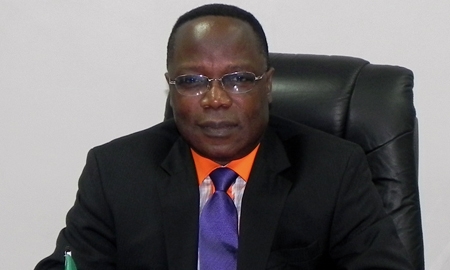
One of 11 state-run distribution businesses unbundled from the Power Holding Company of Nigeria (PHCN), the Ikeja Electricity Distribution Company distributes around 15 per cent of the energy produced nationwide and generates around 25 per cent of PHCN’s total revenue, serving the industrial and manufacturing sector in Lagos. In the bidding round earlier this year, it attracted interest from 10 would-be investors – one more than the Eko Electricity Distribution Company, Lagos’s other big supplier.
In October, the National Council on Privatisation named the New Electricity Distribution Company/KEPCO as the preferred bidder for the Ikeja Electricity Distribution Company, with Vigeo Power Consortium as the reserve bidder.
Ahead of privatisation, the company has been undertaking a number of upgrading and improvement projects, including the installation of tens of thousands of new prepaid meters in a drive to enhance service delivery and attract new customers.
Chief Executive Officer Chris Akamnonu has pledged to install prepaid meters in the homes of all customers served by its network by the end of 2013, ahead of the deadline given by the Nigerian Electricity Regulating Commission (NERC). Monthly installation of meters has been increased from 6,000 to 9,000 units to achieve this target.
The company has also been constructing 33kV and 11kV feeders, procuring and installing distribution transformers, and rehabilitating injection substations as part of a general infrastructure upgrade. Rehabilitation and standardisation of low-voltage networks and construction of a standard store for the company’s operation are also on the agenda.
“Demand for electricity here is very high and our per-capita consumption is the highest in the country,” says Mr Akamnonu. “Our infrastructure is not developed enough to meet demand. There is still a huge gap between what we need and what we have.”
He says the industry is looking forward to infrastructure and human capacity improvement. “We have already done a lot of work in setting up structures to ensure that service delivery keeps on improving as a way of securing customers’ loyalty.”
Mr Akamnonu says the new multi-year tariff order, MYTO2, will provide revenue that will be used to support power generation, distribution and transmission, and will encourage investors to enter the sector.
He believes the government is taking the right approach, and that privatisation will bring in essential new investment to “bridge the infrastructural gaps” that currently result in an inadequate service.
“With this, efficient power supply and the desired level of customer service delivery will be achieved,” he says. “Electricity should be available always; this availability should be taken for granted. The cost of this service will continue to go down as efficiency improves.”
0 COMMENTS